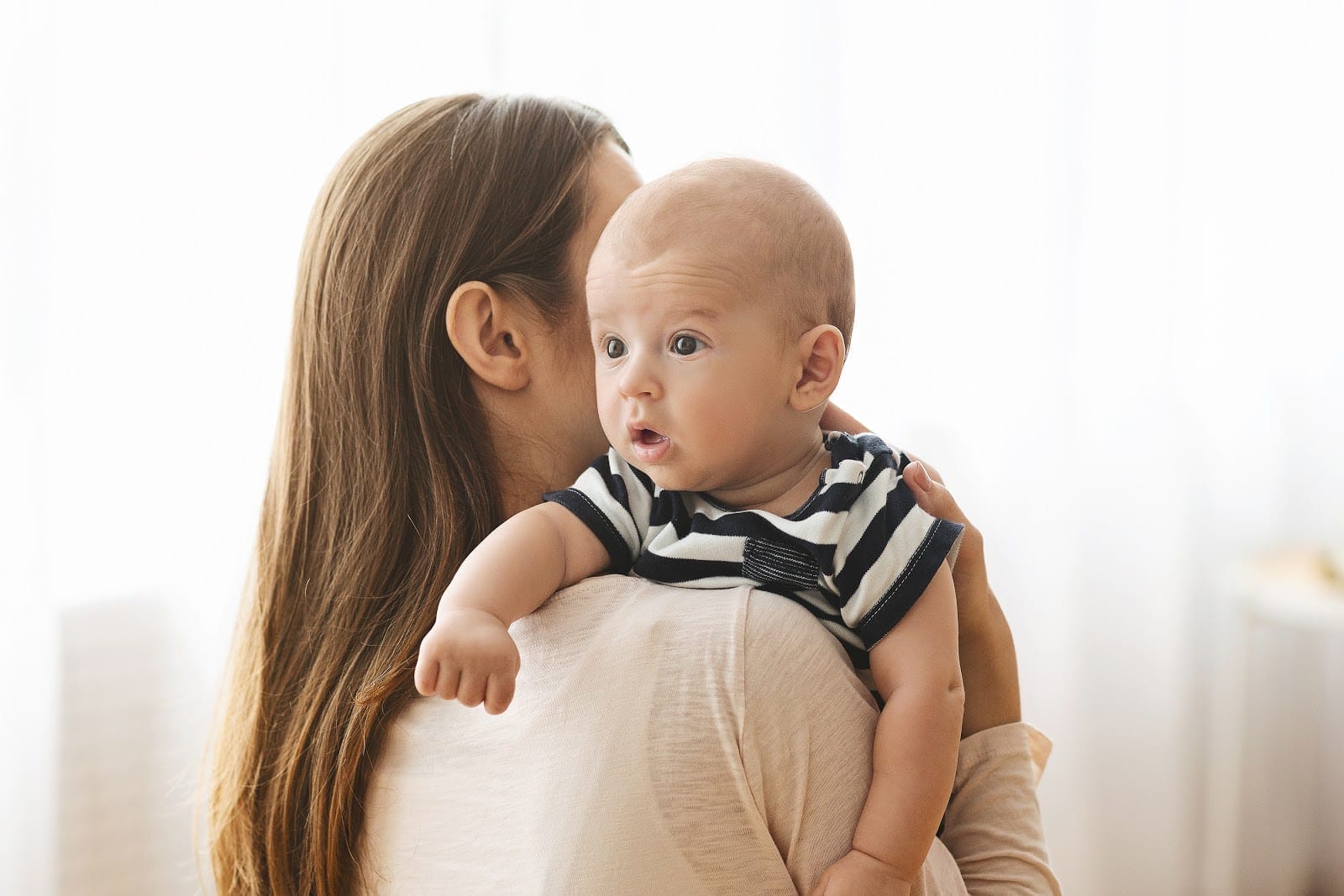We are proud to say that these posts are not sponsored. Our editorial team of Bobbie moms and writers personally select each featured product. If you buy something through our links, we may earn an affiliate commission, at no cost to you.
Whether your baby is breastfed or you are bottle-feeding, if you’re exclusively using breast milk or supplementing with infant formula, you’ve probably had some questions about burping. We are often asked from new parents everything from how to burp a baby to how often you need to burp a baby.
Let’s talk all things burping!
Does my baby need to burp?
It’s commonly believed that infants need to burp to get rid of extra gas in their stomachs.1 The idea is that babies don’t know how to burp on their own and that babies may be bloated or fussy if we don’t help them get that air out.
In fact, it’s so common for people to burp their babies during and after feeding that many of us have never stopped to wonder if it’s necessary.
What would happen if you didn’t burp your baby?
It turns out there’s actually been a study that looked at this question in healthy infants, and it found that burping a baby does not decrease the rate of newborn colic and actually may increase spitting up in young infants. So, burping may not be as necessary as we thought.2
However, lots of people are likely to continue to burp their infants and may feel it’s helpful. It may also offer a nice little break in the feeding routine. So let’s discuss the when and how of burping.
When should I burp my baby?
Most experts recommend burping your baby after they take 1-3 oz of formula or while changing breasts if you are breastfeeding. They also recommend burping them again at the end of the feeding.2,3
How do I burp my baby?
Over your shoulder burping
Over the shoulder burping is a common burping style, and many people use it. Place your baby with their chest against the front of your shoulder and gently rub or pat their back. Your shoulder makes a nice place for your baby’s chin to rest with this technique.1
Sitting up on your lap burping
This position is a simple one that can be used at any time. Sit your baby upright on your lap and lean them forward a little bit. Support their head by placing your hand against their chest and cupping their chin with your palm. Make sure your are holding their chin and not their throat. Your other hand can be used to rub or pat your baby’s back.1
Facedown on your lap burping
Place your baby on their belly across your lap while supporting their head with your hand. Make sure their head is a little higher than their body, then use your other hand to rub or pat their back.1
Burping tips for newborns
Now that we’ve gone through a few how-to’s, let’s review some other helpful advice.
- Remember to be gentle with your baby. Infants don’t have great head control, so make sure they are supported and handled gently.
- Don’t forget to have a baby burp rag or bib handy during burping. Catching a spit up before it hits your clothes and your baby’s outfit can save precious clean up (and laundry!) time.
- Extra clothes are always a must with newborns. Try as you might with the burp rag, things don’t always go perfectly. Be sure to pack extra clothes for your baby when you go out in case this happens to you.
- Remember- that burp may have escaped another way or not need to come out at all, so don’t try for too long or stress if you don’t get that satisfying result.4
What should I do if my baby doesn’t burp?
Now that you know your baby may not need to burp for any medical reason, you may have guessed that the answer to this question is…probably nothing!2
Just like adults, if there’s air in your baby’s belly, it will make its way out, either from the top or the bottom. There’s no harm in not helping this process along unless your baby’s healthcare provider has told you it’s important for them to burp.5
When can I stop burping my baby?
Most babies can burp on their own around 2 months of age.3
Using a baby feeding journal
A baby feeding journal can be helpful if you need to keep track of what your baby is eating and how often. You can also record items like burping, spitting up, and colic symptoms so you can discuss them with your baby’s healthcare provider. Remember, if anything about your baby’s eating, burping, or activity are concerning, always call your baby’s healthcare provider for advice.
Everything to know about burping an infant
Getting your baby to burp can be challenging and perhaps not as necessary as we’ve always thought. If you’re in the habit of burping your baby or your baby’s healthcare provider has recommended that you do this, try the tips above to help things go smoothly.
And if that burp doesn’t happen, don’t stress!
Sources:
1- Burping your baby | Nemours Kids Health
3- Burping a baby | Kaiser Permanente
4- You don’t need to burp babies | McGill Office for Science and Society
5- Debunking old wives’ tales: do babies need to burp after feeding? | University of Utah

